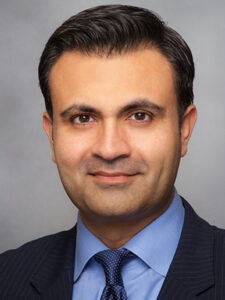Many people have heard that alcohol is good for the heart.
But a new Kaiser Permanente study suggests that may not be the case: More than one alcoholic drink a day increases the risk for heart disease, especially in women.
“We are seeing growing amount of evidence challenging the positive effects of alcohol,” said lead author Jamal Rana, MD, PhD, a cardiologist at Kaiser Permanente in Oakland and an adjunct investigator at the Kaiser Permanente Division of Research who presented the research this month at the annual American College of Cardiology meeting. “We felt it was important to use the data we have available at Kaiser Permanente to contribute to this conversation by exploring the relationship between levels of alcohol use, including heavy episodic or binge drinking, and the risk of coronary heart disease in women and men.”

Coronary heart disease occurs when the arteries that supply blood to the heart become narrowed, limiting blood flow. The disease can increase the risk for stroke and other heart problems.
Binge drinking carries highest risk
The study included more than 432,000 Kaiser Permanente Northern California members ages 18 to 65 who did not have a history of heart disease or stroke. The women and men had all been asked about their alcohol use between 2014 to 2015 during a primary care visit as part of the Alcohol as a Vital Sign. With that initiative, all patients are asked about alcohol use so that clinicians can discuss the risks and how to change their habits with patients who may have a problem.
Researchers identified 3,108 women and men who were diagnosed with coronary heart disease during a 4-year follow-up period.
- The study found that young to middle-aged women who had 8 or more alcoholic drinks per week — more than one per day on average — were 33% to 51% more likely to develop coronary heart disease than those who drank less.
- The highest risk was seen in women and men who reported heavy episodic or binge drinking. These women were 68% more likely to develop heart disease than the women who drank moderately.
- The men who reported binge drinking were 33% more likely to develop heart disease than men who drank moderately.
“Alcohol has been shown to raise blood pressure and lead to metabolic changes that are associated with inflammation and obesity, both of which increase the risk for heart disease,” said senior author Stacy Sterling, DrPH, MSW, a research scientist at the Division of Research. “Women also process alcohol differently than men due to biologic and physiologic differences, and this may contribute to the increased heart disease risk we found. It’s concerning because there has been an increasing prevalence of alcohol use among young and middle-aged women, including in the number of women who binge drink.”

Lighter drinking was 1 to 2 drinks per week for men and women. Moderate intake was 3 to 14 drinks per week for men, and 3 to 7 drinks per week for women. High intake was 15 or more drinks per week for men and 8 or more drinks per week for women. Binge drinking was defined as more than 4 drinks for men or more than 3 drinks for women in a single day in the past 3 months.
The researchers say that even though the findings are preliminary, it’s not too early to translate the research into practice.
Added Dr. Rana: “Our findings suggest that as doctors we need to be doing more to talk to our patients — especially our female patients — about the potential heart risks associated with excess and binge drinking.”




